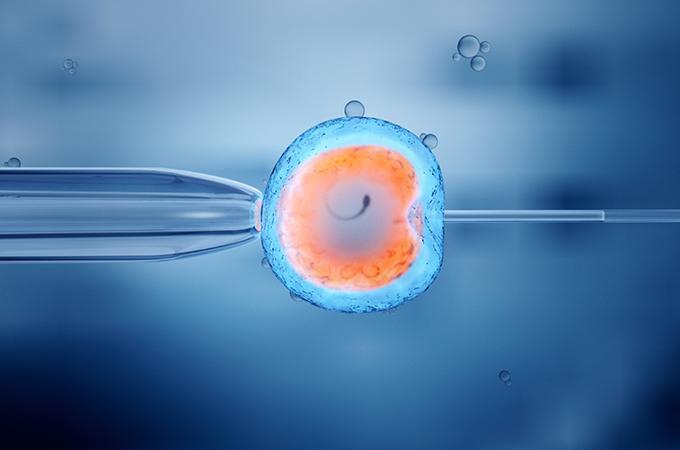Your journey to Conception

Being a little late in conceiving (getting pregnant) is usually not something to worry about. You actually have only about a 30% chance of successfully conceiving naturally at any given time
A whole year of being unable to conceive, however (while constantly trying), might need to be looked into. There are many possible causes, and you might even be successfully getting pregnant, and losing the pregnancy.
At Dr. Faris Medical Center, we start our journey with you even before you are married, with counseling. We also assess any issues you have when you do tie the knot and are still unable to conceive, helping you find out why and tailoring your treatment to your needs.
Premarital Counseling
We all have questions about our bodies, revolving around our reproductive organs, sexuality, and marriage. You won’t find anyone better than your doctor to answer the questions you have about your body’s reproductive functions.
You can book an appointment with one of our counselors and come in to discuss issues like:
– Troubles surrounding puberty
– The ins and outs of sexuality
– How baby-making works
– How you can take care of your body to maintain sexual and child-bearing health
– What methods of contraception are available to you, how they work, and which you should choose
– Why you might not have been able to conceive in a previous marriage but could conceive in your current marriage
Most of all, you’ll find in our counselors the empathic ear that patiently listens, the accurate knowledge that cuts through the complexities, and the guiding hand that gently nudges in the right direction
Our premarital assessment also includes ultrasound scans for the woman and semen analysis for the man, to assess your chances of getting pregnant after the marriage.
Sometimes, it’s not actually the case that you’re not conceiving but, rather, you keep conceiving and losing the pregnancy before you even find out that you’re pregnant. This is a condition called Recurrent Pregnancy Loss (RPL) and could be caused by a number of factors. It requires a thorough workup to find its causes and remedy them.
Lab Evaluation
Our premarital assessment also includes ultrasound scans for the woman and semen analysis for the man, to assess your chances of getting pregnant after the marriage.
Recurrent Pregnancy Loss (RPL)
Sometimes, it’s not actually the case that you’re not conceiving but, rather, you keep conceiving and losing the pregnancy before you even find out that you’re pregnant. This is a condition called Recurrent Pregnancy Loss (RPL) and could be caused by a number of factors. It requires a thorough workup to find its causes and remedy them. Find out more about RPL.
Why are you not getting pregnant & how can Dr. Faris medical center help?

We’ve experienced the joy (and hardships!) of having a family. We’d like to help you experience that joy too. (We’d rather without the hardships, but let’s keep it realistic! Trust us; it’s worth it!)
Your troubles with conception could occur at several stages and could be broken down to two main types:
Trouble with ovulation
The first problem could be that the ovaries are not releasing eggs in the monthly cycles. This process is normally regulated by hormones.
Trouble with fertilization
Sometimes, the male and female sex cells have trouble meeting in the fallopian tubes at the proper time. This could be due to:
• A problem with the sperms or their ability to swim in the uterus
• A problem in the woman’s uterus or fallopian tubes preventing sperm and egg from having their date
• A problem with the man’s sperms’ ability to penetrate the egg
Here’s how we can help remove the obstacles to motherhood (and fatherhood) starting with the least interference and moving on to more invasive techniques.

Induction of Ovulation
If your troubles conceiving are due to a problem with ovulation, our expert reproductive endocrinologists will carefully verify that this is indeed the obstacle through tests and hormonal assays.
Once that is confirmed, it is a simple process of taking a few pills (or enduring a couple of needle pricks) that will regulate your hormones resulting in normal ovulation. Well-timed intercourse should result in fertilization and a tiny person in the not-so-distant future.

Intrauterine insemination (IUI)
If the problem is in fertilization and the male partner’s sperms are healthy, one of the first assisted fertilization techniques we consider is Intrauterine insemination (IUI).
In this procedure, sperms are manually deposited in the uterus where they should easily find and fertilize the egg.

Invitro Fertilization & IntraCytoplasmic Sperm Injection
In Invitro Fertilization (IVF) we take the man’s sperms and several of the woman’s eggs and attempt to let them meet and fertilize in glass dishes. If the sperms are unable to penetrate the egg’s outer coat in order to bring about fertilization, we microscopically inject them into the egg, allowing the two sets of genetic material to meet and fertilization to take place. This procedure is known as IntraCytoplasmic Sperm Injection (ICSI)

Testicular Biopsy
If all these methods do not result in a little baby, we might need to take a tissue sample (called a biopsy) from the man’s testicles to try and get to the root of the problem at the level of the cells.
After a sperm successfully fertilizes an egg, we will place them back into your uterus (a process called implantation) where they should grow into that little miracle we call Baby.
Preserving Your Fertility

We are sometimes given warning before the misfortune of infertility strikes us. And while the misfortune itself is a burden, the warning can give rise to a blessing. Hormone disorders, immunity disorders, and cancer—or even radiotherapy or chemotherapy treatment for cancer—can cause infertility for both men and women.
You might also have a need to delay having children but you’re afraid your body might not be able to produce eggs later. Dr. Faris Medical Center provides you with the facilities that enable you to preserve your fertility until you decide that the time is right for you to have children.
Our facilities offer different forms of preservation for the future:

Egg Freezing
Even before you are married, you can choose to extract several of your egg cells for preservation. These can be later fertilized using your (future) husband’s sperm, and the resulting little baby can be implanted in your uterus for a healthy pregnancy.

Sperm Freezing
The cause of infertility can be almost 30% male. If you’ve been diagnosed with any conditions causing infertility or whose treatments may cause infertility, that doesn’t mean you can never conceive again. Book an appointment with our Clinical Embryologists and Future Fertility Consultants to find out more about sperm freezing and your chances of having children after recovery.

Embryo Freezing
In the process of IVF we end up with several fertilized, healthy embryos that are ready for implantation. Once we achieve successful implantation, the remaining embryos can be preserved and used later in future pregnancies. These embryos can be successfully implanted even after years of preservation.
Additional Services Around IVF

IVF is a marvel of medical science and technology. It lets us extract sex cells from the couple and attempt to let them fertilize. There is no guarantee, however, that every fertilization attempt will succeed. And even if they do, the resulting embryos might not always be healthy. In addition to that, some may be lost or miscarried after implantation.
Since we don’t want you to undergo the process of extraction multiple times, we extract several sex cells when you come in for fertility treatment, and allow them all to become fertilized. We can then test them for genetic diseases, including a faulty chromosome number, and identify their gender.

Genetic Testing
This is how we test the embryos for health. Cells can be safely extracted from the growing embryo while still in our labs, which allows us to test for genetic abnormalities.

Preimplantation Genetic Diagnosis (PGD)
If either of the future parents suffers from or is a carrier of specific genetic disorders, we can test if they show up in any of the embryos through PGD. This involves testing the cells of the fertilized embryos for genetic disorders before implantation. Once we know which embryos are free from the genetic anomaly, the unhealthy ones are discarded, and the remaining healthy embryos can be preserved for future pregnancy.

Sex Selection

Preimplantation Genetic Screening (PGS)
If neither of the future parents suffers from any genetic disorders, we can still carry out the process of genetic testing to discover problems that may have occurred during fertilization or growth, usually a disruption in the number of chromosomes in the embryos. As with PGD, this process is carried out before returning one of the embryos to your uterus, any defective embryos are discarded, and the remaining healthy ones can be preserved for future pregnancy.

